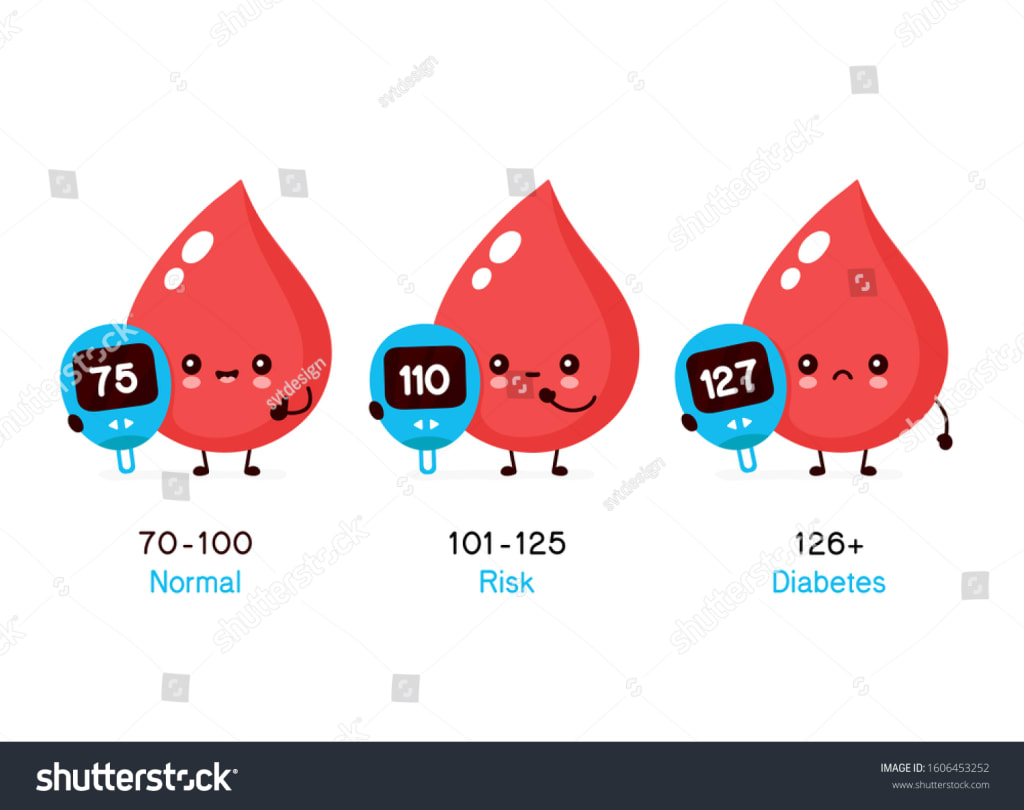Planning for Blood Sugar
Plan for your blood sugar

What is Blood Sugar
Blood sugar, also known as blood glucose, refers to the concentration of glucose (a type of sugar) present in the bloodstream at a given time. Glucose is a crucial source of energy for the body's cells and is the primary fuel for various bodily functions. It comes from the foods we eat, especially carbohydrates, and is transported through the bloodstream to provide energy to cells throughout the body.
The level of blood sugar is tightly regulated by the body's endocrine system, primarily through the actions of two hormones produced by the pancreas: insulin and glucagon.
Insulin: When blood sugar levels rise after eating, the pancreas releases insulin into the bloodstream. Insulin helps facilitate the uptake of glucose by cells, where it can be used for energy or stored for future use. This process helps lower blood sugar levels.
Glucagon: On the other hand, when blood sugar levels drop (such as between meals or during physical activity), the pancreas releases glucagon. Glucagon stimulates the release of stored glucose from the liver into the bloodstream, thus raising blood sugar levels.
Normal blood sugar levels typically vary throughout the day and are influenced by factors such as food intake, physical activity, stress, and hormonal changes. For most healthy individuals, fasting blood sugar levels (measured after an overnight fast) should be in the range of about 70 to 100 milligrams per deciliter (mg/dL). After eating a meal, blood sugar levels can temporarily rise but should return to the normal range within a few hours.
Chronic high blood sugar levels, such as those observed in diabetes or prediabetes, can lead to various health complications if left uncontrolled. These complications may affect the eyes, kidneys, nerves, and blood vessels.
Monitoring and managing blood sugar levels is essential, especially for individuals with diabetes or those at risk of developing the condition. Regular blood sugar testing, a healthy diet, physical activity, and, if necessary, medication or insulin therapy are some of the ways to help maintain optimal blood sugar levels and overall health. As always, it is vital to consult with a healthcare professional for personalized guidance and management.
Smart Blood Sugar Plan
"Smart Blood Sugar Plan" typically refers to a dietary and lifestyle approach aimed at managing and stabilizing blood sugar levels. It focuses on making smart food choices and adopting healthy habits to prevent blood sugar spikes and reduce the risk of developing insulin resistance or diabetes. The plan is often designed to be sustainable and tailored to individual needs. Get the ultimate plan for your blood sugar. Below are some common components that may be included in a Smart Blood Sugar plan:
- Balanced Meals: The plan might recommend consuming balanced meals that include a combination of lean proteins, healthy fats, and complex carbohydrates. This balance can help slow down the absorption of sugars into the bloodstream and prevent sudden spikes in blood sugar levels.
- Low Glycemic Foods: Emphasis is usually placed on choosing low glycemic foods. These are foods that have a slower impact on blood sugar levels compared to high glycemic foods. Examples of low glycemic foods include whole grains, legumes, non-starchy vegetables, and certain fruits.
- Frequent, Smaller Meals: Eating smaller, more frequent meals throughout the day can help maintain more stable blood sugar levels rather than having large, infrequent meals.
- Avoiding Processed Sugars and Refined Carbohydrates: Refined sugars and carbohydrates can cause rapid spikes in blood sugar levels. The plan may advise limiting or avoiding sugary drinks, sweets, processed foods, and white flour products.
- Physical Activity: Regular exercise and physical activity can improve insulin sensitivity and help regulate blood sugar levels. The plan may include recommendations for incorporating physical activity into daily routines.
- Hydration: Staying hydrated is essential for overall health, and it can also help with blood sugar regulation.
- Stress Management: Chronic stress can impact blood sugar levels. Techniques for managing stress, such as meditation, yoga, or relaxation exercises, may be encouraged.
- Monitoring Blood Sugar Levels: For individuals with diabetes or pre-diabetes, regularly monitoring blood sugar levels can provide valuable information for managing the condition effectively.
- Consultation with Healthcare Professionals: Developing a Smart Blood Sugar plan should involve input from healthcare professionals such as a doctor or a registered dietitian, especially for individuals with diabetes or other health conditions.





Comments
There are no comments for this story
Be the first to respond and start the conversation.